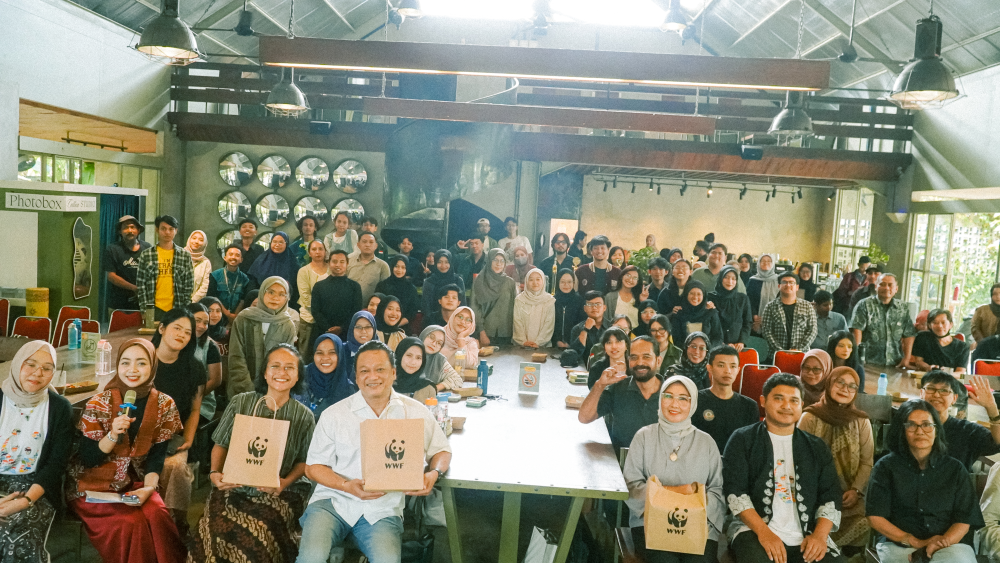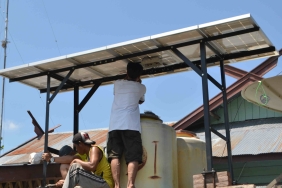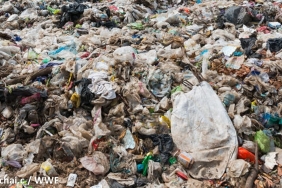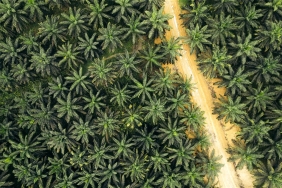WWF-INDONESIA INVITES YOGYAKARTA PUBLIC TO PUSH COMMODITIES AND SUSTAINABLE LIVING IN A FUN WAY!
WWF-Indonesia continues to show its commitment in educating the public about the importance of sustainable lifestyles and consumption through the organization of the Mini Talkshow and Workshop Sustainable Commodities Public Campaign entitled "Make Sustainable Life, Fun". Taking place at Mr. Like Coffee, Yogyakarta, the event featured a cross-section of speakers from the government sector, hospitality industry, to creative local communities who together discussed the urgency and strategies in supporting sustainable commodities in Indonesia.
This initiative is part of WWF's campaign to increase public awareness and engagement in supporting sustainable commodities, one of which is sustainable palm oil that is produced in an environmentally, socially, and economically responsible manner.
Collaborative Talkshow: Bringing Together Expert, Government, Industry, and Community Viewpoints
Adhitya Adhyaksa, WWF-Indonesia's Sustainable Palm Oil Specialist, opened the session by explaining that Indonesia has around 17.8 million hectares of oil palm plantations, but only around 10% have been certified CSPO (certified sustainable palm oil) through the RSPO (Roundtable on Sustainable Palm Oil) or ISPO (Indonesia Sustainable Palm Oil) schemes.
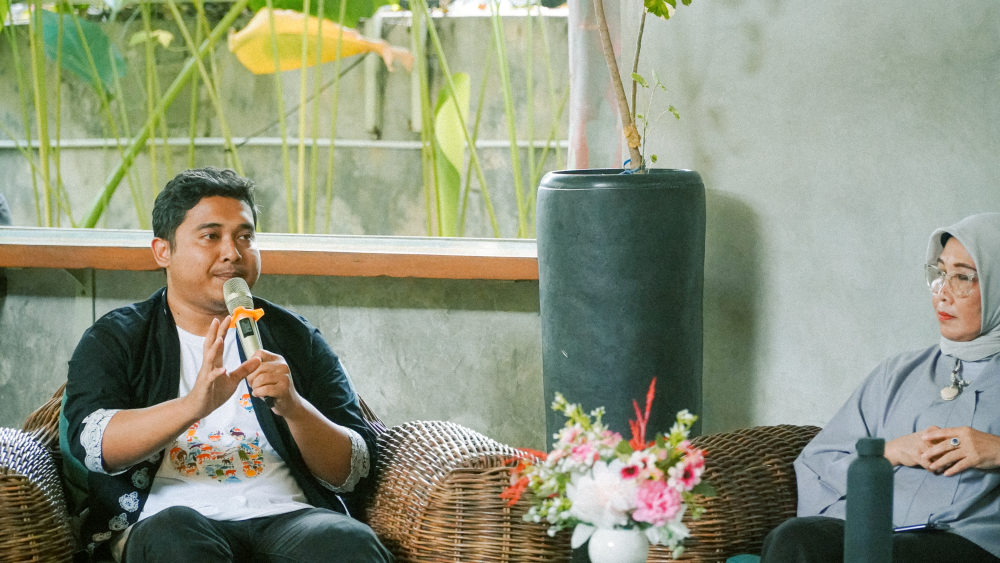
According to him, the low level of consumption of sustainably labeled palm oil in Indonesia is due to the lack of education and support for environmentally friendly products. Adhitya emphasized the importance of changing people's consumption patterns and encouraging producers and consumers to use sustainable products and ensure that farming practices are carried out responsibly, such as the use of personal protective equipment (PPE), not clearing peatlands, not employing minors, and protecting river and forest ecosystems.
In the next session, Yuna Pancawati, Head of the DIY Industry and Trade Office, emphasized that the local government has developed a roadmap for the sustainable industry until 2025. This effort is done by assisting MSMEs that produce recycled goods, vintage products, and community-based works. One concrete example is the development of wooden rickshaws, which have become a symbol of environmentally friendly transportation. DIY also actively promotes sustainability-based MSME products to the national and international levels, including to European markets that are known to have a high attention to environmental aspects.
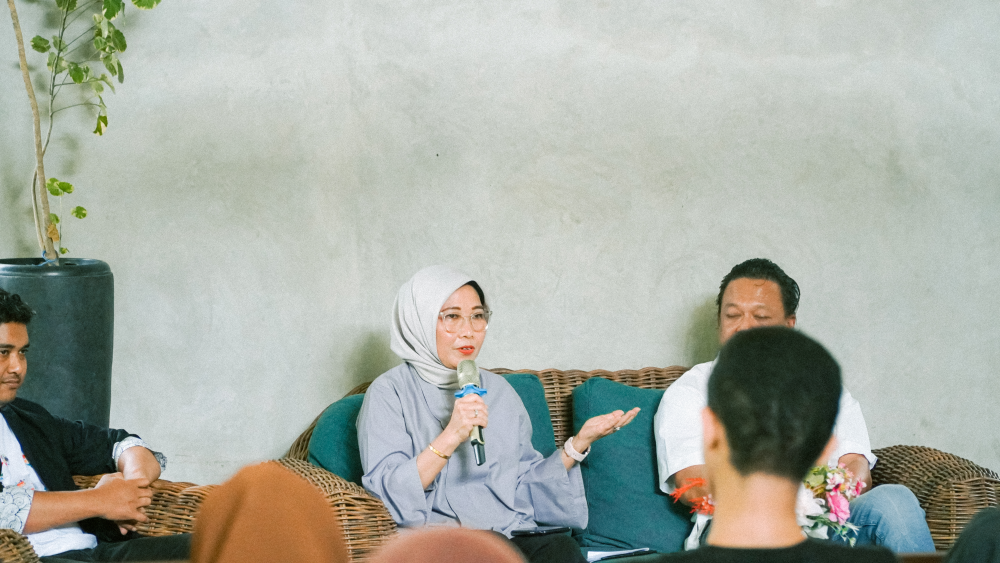
From the industry sector, Andre Harso Binawa, General Manager of Artotel Yogyakarta, shared the steps ARTOTEL Yogyakarta has taken to support sustainable lifestyles. Since the last four years, ARTOTEL Yogyakarta has reduced the use of single-use plastics, replaced straws with eco-friendly versions, and processed kitchen waste such as banana and pineapple peels into beverage ingredients such as cocktails and mocktails.
All employees at ARTOTEL Yogyakarta are also encouraged to innovate by processing waste into value-added products. In addition, the hotel has started to switch to using RSPO-certified sustainable palm oil derivative products. Although it requires higher costs, this step is considered safer and more profitable in the long run. To support food management, breakfast management is also set to only 40% of guest capacity, thereby reducing the amount of leftovers.
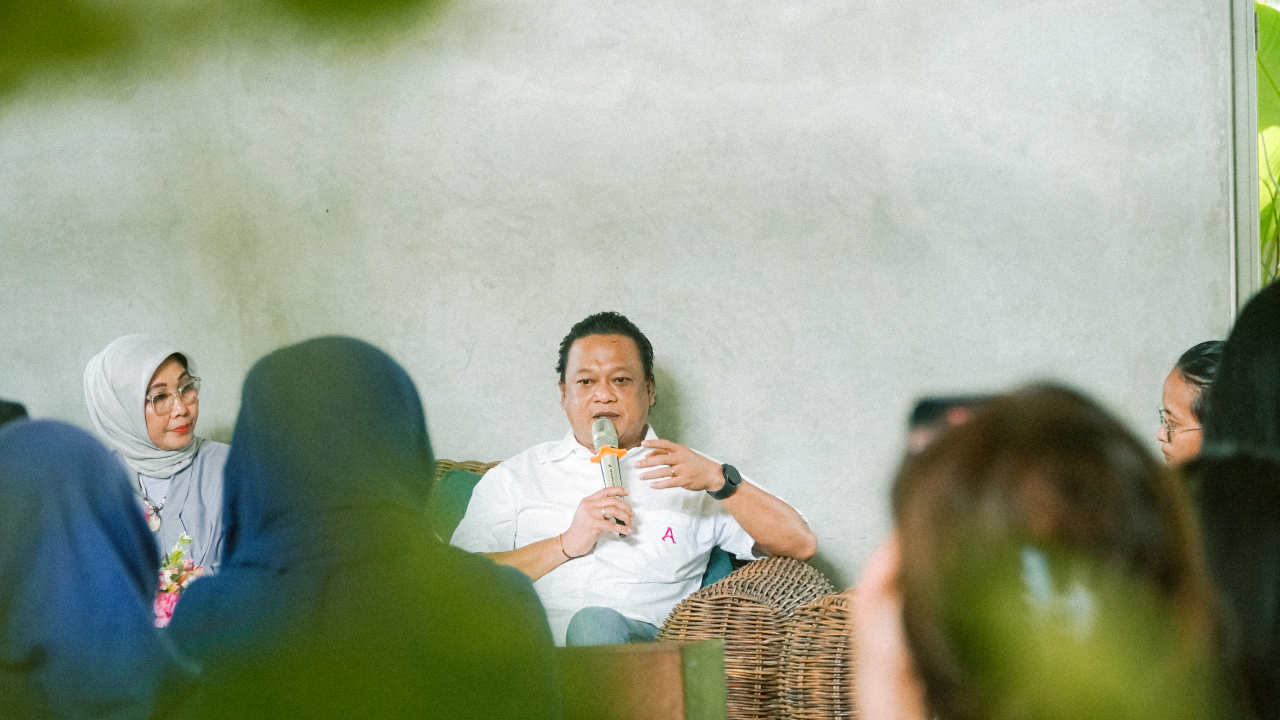
From the community side, Agnesia Tri Mulyaningsih, founder of Shibumiasri community, shared how a sustainable lifestyle can be done in a simple and fun way. She shared her personal experience: Stopping the use of plastic straws (a three-year process), cycling to reduce vehicle emissions, avoiding buying new clothes, and implementing upcycling practices from used paper and plastic. She believes that change can start with oneself and then spread through social challenges to others. This style has proven to be more effective in forming positive habits that last for a long time.
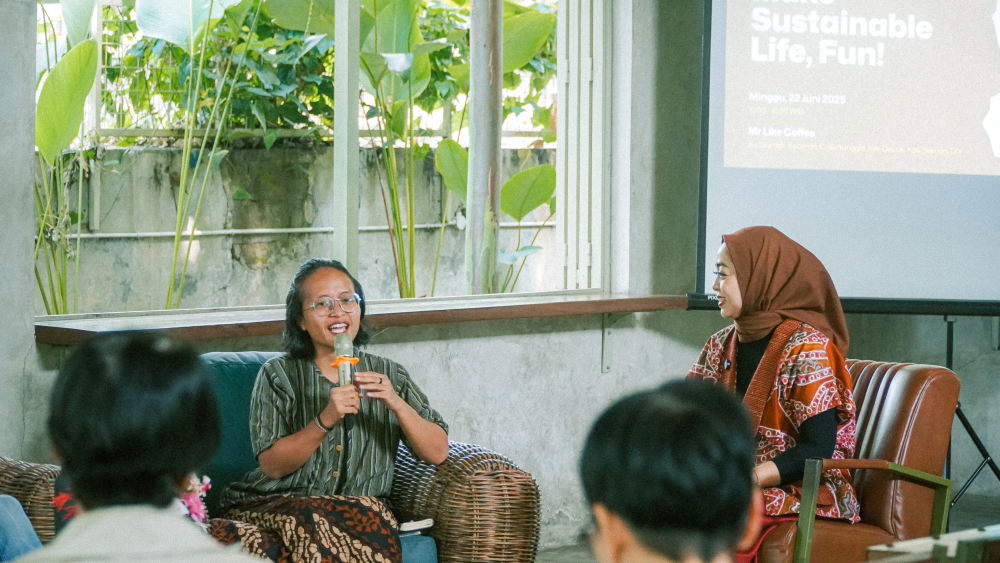
Creativity to Drive Environmental Issues through Natural Aromatherapy Candles and Junk Journaling Workshop
Not only talk shows, participants were also invited to participate in various fun but educational activities to encourage good things for the environment, namely Junk Journaling activities and making aroma therapy candles from natural ingredients. Junk journaling itself is an activity of making journal collages from household waste, which will then be pasted in a book from the remaining recycled paper waste. For the aroma therapy candle-making workshop, WWF Indonesia collaborated with Made by Kartala to make candles from palm wax and natural ingredients.
WWF-Indonesia hopes that this public campaign activity can continue to encourage more people to realize the importance of starting to implement a sustainable lifestyle and the use of certified commodities, such as RSPO palm oil derivatives, that can be found in everyday life. By adopting a sustainable lifestyle, the community will also encourage industrial changes that are more friendly to the environment and the sustainability of biodiversity in Indonesia.

